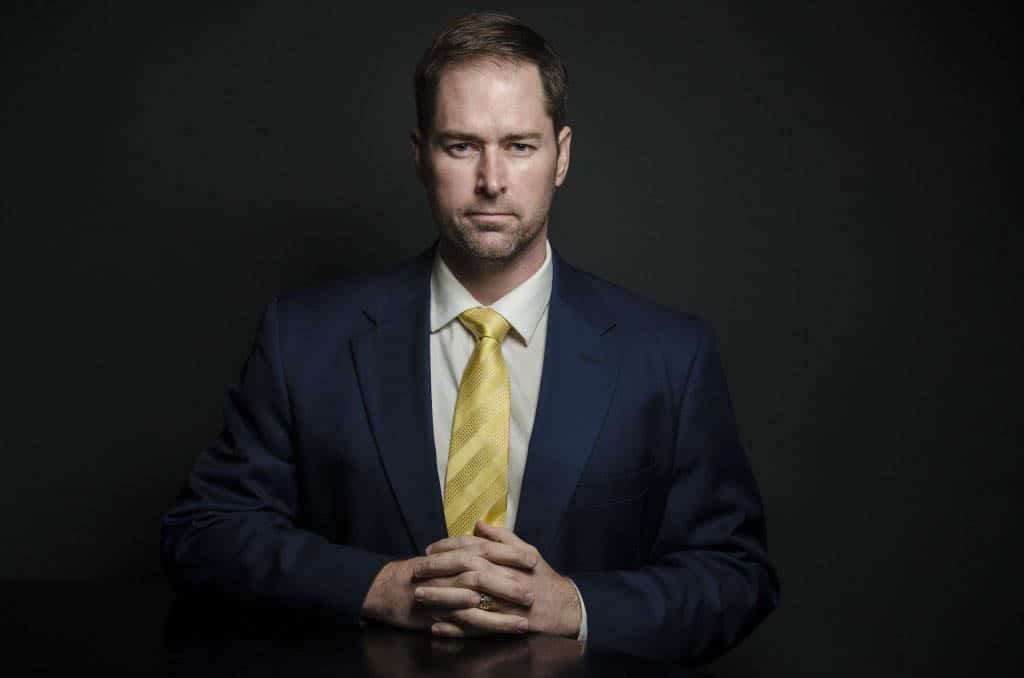Chapter 7 Bankruptcy Lawyers - Nick Davis Law
Chapter 7 vs. Chapter 13 Bankruptcy: Choosing the Right Path to Financial Freedom Click to callSchedule a Free ConsultServing Montgomery, Harris, Fort Bend, Brazos, Grimes, Waller, Walker & Surrounding Counties
Choosing the Right Bankruptcy Path to Financial Freedom in The Woodlands, Conroe, Katy, Houston, College Station, Texas

Bankruptcy can be a powerful tool for individuals seeking relief from unmanageable debt, but selecting the wrong type could significantly impact your financial recovery. Understanding the differences between Chapter 7 and Chapter 13 Bankruptcy is critical for making the right choice.
For residents of The Woodlands, Houston, Katy, and College Station, taking action quickly is essential. Delays in filing could lead to wage garnishments, asset seizures, or even the loss of your home. This guide will help you understand both types of bankruptcy, so you can act decisively and reclaim control of your financial future.
Take the first step toward debt relief today. Contact Nick Davis Law at (936) 262-7474 for a free consultation. We proudly serve The Woodlands, Katy, and surrounding Texas counties.
Don’t wait until it’s too late to act. Contact Nick Davis Law Bankruptcy Relief Lawyers today for a free consultation at (936) 262-7474 and assistance in filing for Bankruptcy in The Woodlands, Houston, Katy, and College Station.
What is Chapter 7 Bankruptcy?
A Fresh Start for Those Who Qualify
Chapter 7 Bankruptcy, often called “liquidation bankruptcy,” is designed to eliminate most unsecured debts, such as credit cards, medical bills, and personal loans. It offers individuals a fresh start by discharging these debts, often within 3 to 6 months.
-
How Chapter 7 Works:
Your assets are evaluated, but most people who file are able to keep their essential belongings due to Texas bankruptcy exemptions, which protect assets like your home, vehicle, and retirement accounts. Any non-exempt property may be sold to repay creditors, but this is uncommon in many cases. -
Common Debts Discharged Under Chapter 7:
- Credit card balances.
- Medical bills.
- Unsecured personal loans.
- Certain old utility bills.
If you pass the Means Test—an eligibility requirement discussed later—Chapter 7 may provide the fastest route to financial recovery.
What is Chapter 13 Bankruptcy?
A Repayment Plan for a Structured Recovery
Chapter 13 Bankruptcy is a reorganization plan that allows individuals to repay some or all of their debts over 3 to 5 years. Unlike Chapter 7, Chapter 13 is designed for people who have regular income but need time to catch up on overdue payments or reorganize their finances.
-
How Repayment Plans Work:
Your debts are categorized as secured (e.g., mortgages, car loans) or unsecured (e.g., credit cards). Your repayment plan prioritizes secured debts while paying a portion of unsecured debts based on your disposable income. -
Key Benefits:
- You can prevent foreclosure or repossession by catching up on overdue payments.
- Chapter 13 allows you to retain all your property if you comply with the repayment plan.
This type of bankruptcy is ideal for individuals in Houston, Katy, or College Station who want to save their homes or vehicles from creditors.
Key Differences Between Chapter 7 and Chapter 13 Bankruptcy?
How They Differ and Why It Matters
Understanding the fundamental differences between Chapter 7 and Chapter 13 is crucial for choosing the right path.
-
Eligibility:
- Chapter 7 requires passing the Means Test to prove your income is below the state median.
- Chapter 13 is available to those with regular income and within certain debt limits.
-
Timeline:
- Chapter 7 offers a discharge within months.
- Chapter 13 requires a repayment plan lasting 3 to 5 years.
-
Asset Treatment:
- Chapter 7 may involve liquidating non-exempt property.
- Chapter 13 allows you to retain all assets if you follow the repayment plan.
-
Long-Term Impact:
- Chapter 7 remains on your credit report for 10 years.
- Chapter 13 stays for 7 years but shows a repayment effort, which may be viewed more favorably by lenders.
OVERVIEW OF CHAPTER 7
COMMON QUESTIONS
CREDIT COUNSELING
341 MEETING
BENEFITS OF CHAPTER 7 BANKRUPTCY
CHAPTER 7 VS. CHAPTER 13
MEANS TEST & ELIGIBILITY FOR CHAPTER 7
FILING FOR CHAPTER 7 IN TEXAS
DEBTS DISCHARGED IN CHAPTER 7
PROTECTING ASSETS
TEXAS EXEMPTIONS
TEXAS SPECIFIC BANKRUPTCY
ROLE OF TRUSTEE
EMERGENCY BANKRUPTCY
IMPACT OF CHAPTER 7
LIFE AFTER CHAPTER 7
BANKRUPTCY LITIGATION
ADDITIONAL BANKRUPTCY AREAS
ALTERNATIVES TO BANKRUPTCY
CHAPTER 11 BANKRUPTCY
Chapter 7 or Chapter 13 Bankruptcy – Which is Right
The Costs and Benefits of Chapter 7 and Chapter 13
What You Need to Know Before You File
Filing Costs:
- Chapter 7 generally involves lower upfront costs.
- Chapter 13 has higher costs due to the complexity of creating and administering a repayment plan.
Benefits of Chapter 7:
- Faster debt discharge.
- No repayment obligations.
- Freedom from most unsecured debts in as little as three months.
Benefits of Chapter 13:
- Protects your home and car from foreclosure or repossession.
- Allows repayment of non-dischargeable debts, like taxes or child support, over time.
- Offers a chance to catch up on secured debt payments.
Chapter 7 Bankruptcy – Straight Liquidation
Who Should Choose Chapter 7?
Is Chapter 7 Right for You?
Chapter 7 is ideal for individuals with limited income and minimal assets who are burdened by unsecured debts.
- You may qualify if you pass the Means Test, which evaluates your income against Texas’s state median.
- It’s often the faster and simpler solution, making it a popular choice for individuals in The Woodlands or Houston seeking immediate relief from overwhelming debt.
If you have few assets and primarily unsecured debts, Chapter 7 might be your best option.
Chapter 13 Bankruptcy – Repayment Plan
Who Should Choose Chapter 13?
When Chapter 13 is the Better Option
Chapter 13 is better suited for individuals with regular income who want to protect their assets and reorganize their finances.
- This option is especially helpful for homeowners in Katy or College Station facing foreclosure, as it allows you to catch up on missed mortgage payments.
- Chapter 13 is also beneficial if you have co-signed loans or secured debts that you want to repay under manageable terms.
It provides the flexibility to address a wider range of financial challenges.
Schedule a Consult Soon
The Urgency to Act: Timing Matters?
Don’t Wait—Your Financial Options Depend on Timing
Timing is critical when deciding between Chapter 7 and Chapter 13 Bankruptcy.
- Income fluctuations or bonuses could impact your eligibility for Chapter 7.
- Delaying your filing increases the risk of losing assets to creditors through garnishments, repossessions, or lawsuits.
- Early consultation with a dedicated bankruptcy lawyer in The Woodlands or Houston can help protect your financial future.
Bankruptcy Myths
Common Misconceptions About Chapter 7 and Chapter 13
Clearing Up the Myths About Bankruptcy
“You’ll lose everything in Chapter 7.”
Texas exemptions protect most of your essential property, including your home and vehicle.
“Chapter 13 is just a way to avoid paying debts.”
In reality, Chapter 13 involves a court-approved repayment plan for both secured and unsecured creditors.
“Bankruptcy ruins your credit forever.”
Many filers begin rebuilding their credit within a year after discharge.
“You can only file once in your lifetime.”
There are time limits for re-filing, but you are not limited to a single bankruptcy filing.
“Only irresponsible people file for bankruptcy.”
Bankruptcy often stems from unforeseen events like medical emergencies or divorce, not irresponsibility.
How Nick Davis Law Bankruptcy Attorneys Can Help You Decide
Guidance for Your Unique Situation
Our trusted bankruptcy attorneys at Nick Davis Law in Houston, Katy, College Station, or The Woodlands can assess your situation, explain your options, and guide you through the filing process.
Contact the Nick Davis Law Firm to speak with a dedicated bankruptcy lawyer and regain control of your finances.
FAQ
Frequently Asked Questions
What are the main differences between Chapter 7 and Chapter 13 Bankruptcy?
The primary difference between Chapter 7 and Chapter 13 Bankruptcy lies in how debts are addressed. Chapter 7, known as liquidation bankruptcy, involves the discharge of most unsecured debts without requiring repayment. It is typically completed within 3 to 6 months, making it a faster solution for those who qualify. On the other hand, Chapter 13 is a reorganization bankruptcy that establishes a court-approved repayment plan over 3 to 5 years, allowing individuals to pay back some or all of their debts based on their income and financial situation. Another key distinction is asset protection: Chapter 7 may involve selling non-exempt property, while Chapter 13 lets you keep all assets if you adhere to the repayment plan. Finally, eligibility for Chapter 7 depends on passing the Means Test, whereas Chapter 13 has debt limits for qualification.
Which option allows me to keep my home or car?
Both Chapter 7 and Chapter 13 Bankruptcy offer ways to protect your home or car, but the approaches differ. Chapter 7 may require you to surrender non-exempt property, but Texas exemptions often protect essential assets like your primary residence and vehicle. If you’re current on your mortgage or car loan payments, you can typically keep those assets. Chapter 13 is particularly beneficial for those who are behind on payments, as it allows you to catch up through a structured repayment plan while halting foreclosure or repossession proceedings. The automatic stay in both types of bankruptcy temporarily prevents creditors from taking further action, giving you time to address overdue payments. Consulting with a dedicated bankruptcy attorney in The Woodlands or Houston can help determine the best option for protecting your assets.
What debts can’t be discharged under Chapter 7 or Chapter 13?
While bankruptcy can eliminate many debts, certain obligations cannot be discharged under Chapter 7 or Chapter 13. These include child support, alimony, most student loans, and recent tax debts. Additionally, debts incurred through fraud, criminal restitution, and fines are generally non-dischargeable. However, Chapter 13 provides an opportunity to manage these debts through the repayment plan, potentially making them more manageable. For example, past-due child support or tax arrears can be paid off over the course of the plan. It’s crucial to review your specific debts with a trusted bankruptcy lawyer in Katy or College Station to understand which obligations can be addressed through bankruptcy and which will remain after your case concludes.
What happens to my credit score after filing for Chapter 7 or Chapter 13?
Filing for bankruptcy will initially have a negative impact on your credit score. Chapter 7 remains on your credit report for up to 10 years, while Chapter 13 stays for 7 years. However, bankruptcy can also be a turning point for rebuilding your financial future. Many people begin to improve their credit shortly after discharge by managing debts responsibly, paying bills on time, and using secured credit cards. Chapter 13 may have a slightly less severe credit impact since it involves repayment, which some lenders view as a responsible effort. Over time, the fresh start provided by bankruptcy can outweigh the temporary credit impact, especially when working with a dedicated bankruptcy attorney to avoid future financial pitfalls.
Can I file for Chapter 7 if I’ve filed for bankruptcy before?
Yes, you can file for Chapter 7 again, but certain time restrictions apply. If you previously filed for Chapter 7, you must wait eight years from the date of your last filing to be eligible to file again. If you filed for Chapter 13 previously, you must wait six years to file for Chapter 7 unless specific conditions are met, such as paying off a certain portion of your debts in the Chapter 13 case. These timelines are designed to prevent abuse of the bankruptcy system while still allowing individuals a chance to seek relief when genuinely needed. Understanding these rules is critical, and a trusted bankruptcy lawyer in Houston can help determine your eligibility based on your filing history.
How do Chapter 7 and Chapter 13 affect co-signed loans?
Co-signed loans are treated differently in Chapter 7 and Chapter 13 Bankruptcy. Under Chapter 7, the co-signer may still be held liable for the loan if you receive a discharge, as the creditor can pursue the co-signer for repayment. Chapter 13 offers better protection for co-signers through its repayment plan. If the loan is included in the repayment plan and payments are made according to the terms, the creditor typically cannot pursue the co-signer during the plan. For individuals in The Woodlands or Katy, it’s important to discuss co-signed debts with a dedicated bankruptcy attorney to explore the best way to protect co-signers while addressing your financial challenges.
What happens if I miss a payment under a Chapter 13 repayment plan?
Missing a payment under a Chapter 13 repayment plan can jeopardize your case, but options are available to resolve the issue. If you miss one or more payments, your trustee may file a motion to dismiss your case or convert it to Chapter 7. However, you can often negotiate with the trustee to modify the repayment plan or catch up on missed payments. Filing for a hardship discharge is another possibility, though it requires showing that circumstances beyond your control make repayment impossible. It’s essential to communicate with your bankruptcy attorney promptly if you face difficulties making payments, as acting quickly can help preserve your case and prevent negative consequences.
Does filing for Chapter 7 or Chapter 13 stop creditor harassment?
How long do the effects of bankruptcy stay on my credit report?
Can I switch between Chapter 7 and Chapter 13 after filing?
From the Blog
Recent Articles
Take Control of Your Financial Future Today
FLEXIBLE APPOINTMENTS | PAYMENT PLANS
At Nick Davis Law, we understand that bankruptcy is a complex and emotional process. Whether you’re an individual facing overwhelming personal debt or a business looking to restructure, we’re determined to guide you through every step. Bankruptcy is not the end—it’s the beginning of a new, more secure financial future.
Get a Free Consultation Now
Contact Nick Davis Law, serving The Woodlands, Katy, Houston, College Station and surrounding cities and counties. Take control of your financial future today—call us at (936) 262-7474. Our Montgomery, Harris, Fort Bend, Walker, Brazos, Grimes, Waller County Bankruptcy Lawyers regularly offer After-Hour & Weekend Phone and Virtual Consults and Payment Plans.
Contact us
Nick Davis Law
26418 Oak Ridge Dr.
The Woodlands, TX 77380
(936) 262-7474
The Woodlands, Texas
26418 Oak Ridge Dr.
The Woodlands, TX 77380
(936) 262-7474
Appointments Only
Bryan | College Station, Texas
750 William D. Fitch Pkwy, Ste 210
College Station, TX 778455
(979) 417-2220
Business Hours
Mon - Fri 8:00 am to 6:00 pm
Our Mission
The Trusted Family, Divorce, Bankruptcy, CPS, and Small Business Lawyers at Nick Davis Law are dedicated to providing the best and most efficient representation possible to our clients to achieve their goals quickly and cost effectively. Nick Davis Law maintain offices in The Woodlands, Katy, Texas and Bryan | College Station and serve all of Montgomery County, Brazos County, Walker County, Waller County, Grimes County, Washington County, Burleson County, San Jacinto County, Liberty County, Harris County, and surrounding counties.

 Nick Davis Law is a firm dedicated to helping individuals with all their family law needs and serves Montgomery, Harris, Waller, Grimes, Walker, Brazos, Washington, Burleson, Fort Bend and surrounding counties.
Nick Davis Law is a firm dedicated to helping individuals with all their family law needs and serves Montgomery, Harris, Waller, Grimes, Walker, Brazos, Washington, Burleson, Fort Bend and surrounding counties. 



